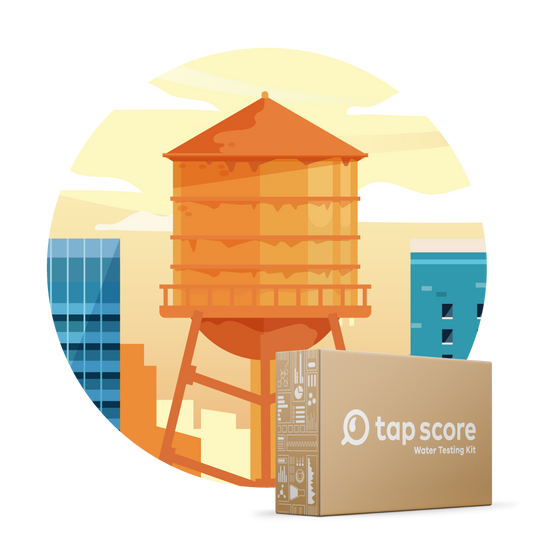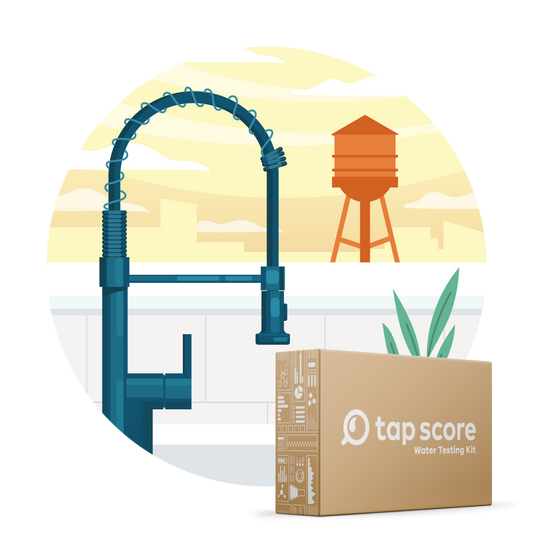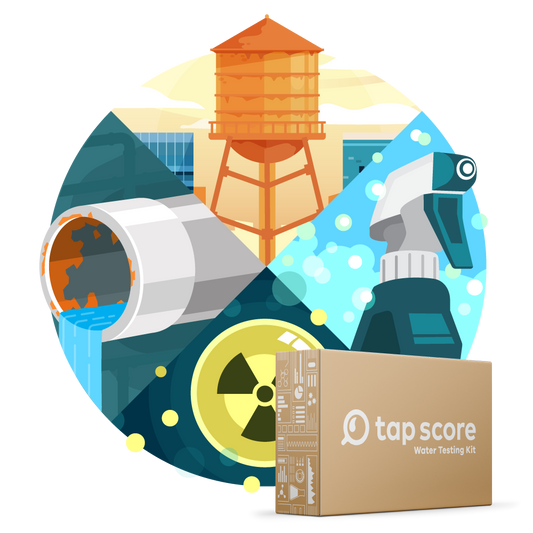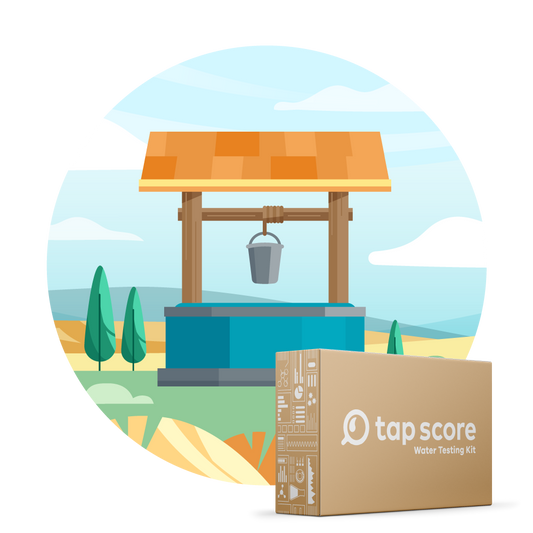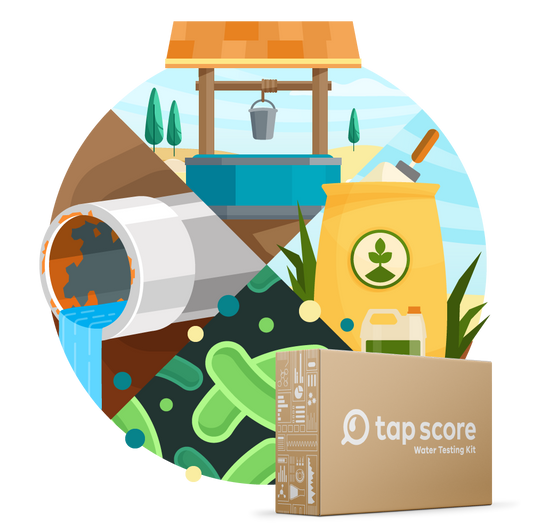
Floodwater Contamination: The Hidden Dangers to Drinking Water Safety
Our blog is written by real experts— not AI. Each guide is carefully reviewed and updated based on the latest research. Plus, with no affiliate links, you can count on unbiased insights you can trust.
Floodwater contamination poses a serious threat to drinking water safety. But how do floods contaminate drinking water? By introducing dangerous chemicals, bacteria, and sewage into our water supplies. Floods can disrupt water purification and sewage disposal systems, overflow toxic waste sites, and dislodge chemicals previously stored above ground. This can quickly contaminate drinking water supplies with a toxic stew of chemicals and bacteria.
This disaster guide explores the risks to your drinking water supply after the high waters recede.
Table of Contents:
- Is Drinking Water Safe After a Flood?
- Why Drinking Water Is Unsafe After Floods
- What to Do if You Encounter Floodwater
- What's the Takeaway?
Is Drinking Water Safe After a Flood?
You should consider all water after a flood unsafe until it is explicitly deemed otherwise by local authorities.
While suspended sewage and oil slicks are clear indications of contamination, floodwater is contaminated no matter what it looks like. Drinking water wells can become contaminated from inundation of floodwater laced with toxins, chemicals, septic seepage, and municipal sewage. We recommend testing your water after floodwaters recede.
Why Drinking Water Is Unsafe After Floods
Floodwater has a great potential to harbor pathogenic bacteria from damaged sewage infrastructure (including septic tanks). This can lead to potentially life-threatening infectious diseases.
Common pathogens and viruses include:
- E. coli
- Salmonella
- Hepatitis A
- Typhoid
- Tetanus
Coastal flooding with an influx of ocean water may also bring diseases like Vibrio—a highly dangerous “flesh-eating” disease sometimes contracted by people following hurricanes.
While direct contact with floodwater will put you at the highest health risk, floodwater's toxic mix threatens drinking water sources (both surface water and groundwater).

Public Water Systems
Impacted public water systems will issue advisories to its customers and remain in constant communication as things develop. But, as we mentioned earlier, it's a good idea to consider your water unsafe to drink until informed otherwise. Floods can impact small water systems the hardest. The CDC recommends that you bring water to a rolling boil for at least one minute in order to kill major waterborne pathogens before using potentially-contaminated municipal tap water.
Private Well Owners
Concern is particularly high for those with private wells, where drinking water is at risk of mixing with contaminated floodwater. Swiftly moving floods carry debris that can dislodge well hardware, allowing contaminated water and sediment to enter into your well system. This can even lead to a total collapse of your well. As private well contamination is not monitored by the government, residents are usually left to fend for themselves.
The EPA has prepared a handy guide on what well owners should do after a flood. Key points include:
- Avoid turning on your pump after floodwaters have receded. Electric shock can occur.
- DO NOT drink or wash with your well water.
- Drilled, driven, or bored wells are best disinfected by a well or pump contractor due to the difficulties of thoroughly disinfecting these types of wells.
What to Do if You Encounter Floodwater
The Center for Disease Control (CDC) advises that if you are in a flooded area, you should avoid or limit direct contact with contaminated water. Exposure to contaminated floodwater can cause:
- Wound infections
- Skin rashes
- GI illness
- Tetanus
- Melioidosis (along the Gulf Coast)
In addition to pathogens and viruses, agricultural and industrial chemicals can be swept up into the floodwater mix by traveling over fields and streets. It's critical that you see a doctor about cuts, open wounds, and all symptoms of illness.
Importantly, have your drinking water tested by a certified laboratory.
Testing Your Water
Testing your water after a flood is a vital step for private well owners before resuming normal use. If you own a private well, you'll want to test your water for:
- Bacteria (especially E. coli)
- Nitrates and nitrites
- Heavy metals (e.g., iron, lead, and arsenic)
- Contaminants of local concern*
*Most importantly, being familiar with your location is key to understanding the risks a flood might pose to your water quality. If you live near heavy industry, you might be at risk of contamination by VOCs, petroleum compounds, and other industrial chemicals. If you live near agriculture, your water would be more prone to contamination by pesticides and fertilizers.
Tap Score offers rush testing for bacteria, which is most important immediately after a flood:
Tap Score's Total Microbiology Water Test is a comprehensive pathogen and microbiological screening service for advanced identification and enumeration of thousands of species of bacteria, protozoa, algae and more in tap water, well water, and other surface water.
Additionally, persistently wet environments are ideal for toxic mold growth, which can develop in just a matter of days. It is crucial to test your home for mold if you’ve experienced flooding at home.
Where Can I Get Help with My Water Quality After a Flood?
Tap Score's team of water quality experts are always on call to assist you with water quality issues.
Likewise, the Water Systems Council has a hotline where they help people daily. Water Systems Council wellcare® Hotline: +1 (888) 395-1033
What's the Takeaway?
- Floodwaters can disrupt water purification and sewage disposal systems, overflow toxic waste sites, and then dislodge chemicals previously stored above ground. This can quickly contaminate drinking water supplies with a toxic stew of chemicals and bacteria.
- Both the EPA and CDC advise those in an area affected by flooding to consider all water after a flood unsafe until it is explicitly deemed otherwise by local authorities. Contact and/or ingestion of contaminated floodwater can cause an array of life-threatening illnesses.
- Well owners are particularly at risk and should have their water tested by a certified laboratory prior to resuming use. Additionally, toxic mold growth on affected surfaces is a significant issue to test and address.
Media inquiries? Get in touch with our team of water quality experts!





